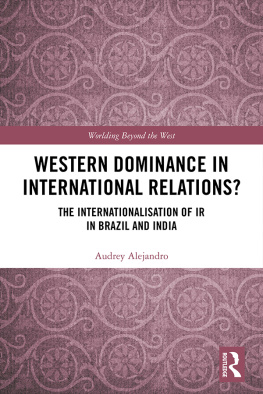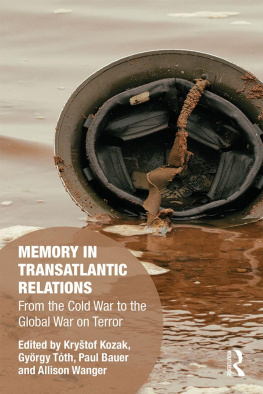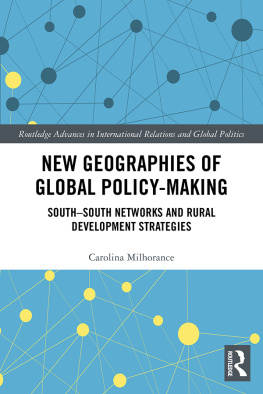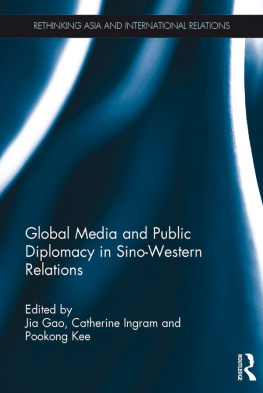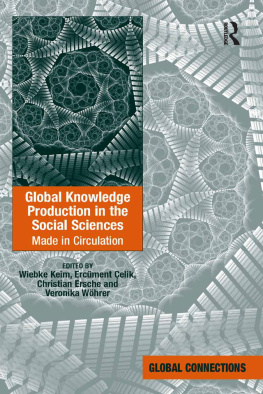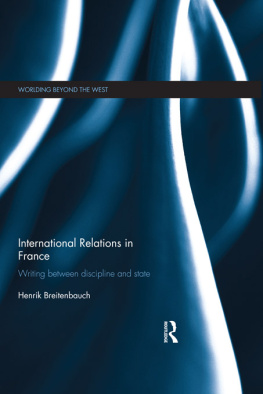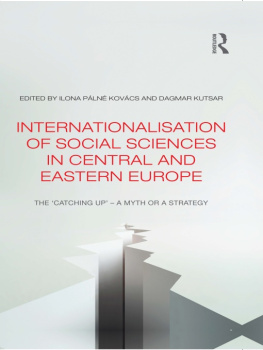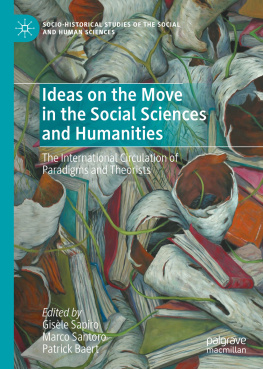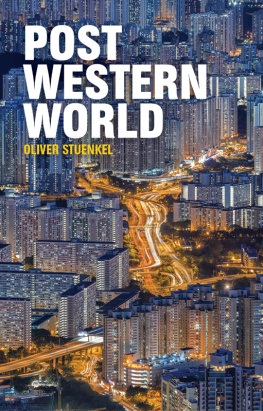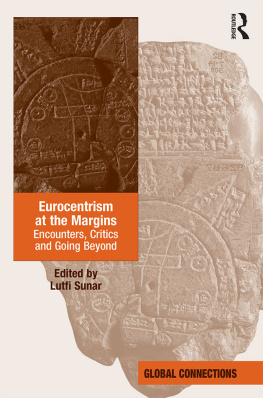Table of Contents
Pages
Western Dominance in International Relations?
Since the 1970s, a critical movement has been developing in the humanities and social sciences denouncing the existence of Western dominance over the worldwide production and circulation of knowledge. However, thirty years after the emergence of this promising agenda in International Relations (IR), this discipline has not experienced a major shift.
This volume offers a counter-intuitive and original contribution to the understanding of the global circulation of knowledge. In contrast to the literature, it argues that the internationalisation of social sciences in the designated Global South is not conditioned by the existence of a presumably Western dominance. Indeed, although discriminative practices such as Eurocentrism and gate-keeping exist, their existence does not lead to a unipolar structuration of IR internationalisation around the West. Based on these empirical results, this book reflexively questions the role of critique in the (re)production of the social and political order. Paradoxically, the anti-Eurocentric critical discourses reproduce the very Eurocentrism they criticise. This book offers methodological support to address this paradox by demonstrating how one can use discourse analysis and reflexivity to produce innovative results and decentre oneself from the vision of the world one has been socialised into.
This work offers an insightful contribution to International Relations, Political Theory, Sociology and Qualitative Methodology. It will be useful to all students and scholars interested in critical theories, international political sociology, social sciences in Brazil and India, knowledge and discourse, Eurocentrism, as well as the future of reflexivity.
Audrey Alejandro is Assistant Professor at the Department of Methodology, London School of Economics and Political Science.
Worlding Beyond the West
Series Editors:
Arlene B. Tickner
Universidad del Rosario, Colombia
David Blaney
Macalester College, USA
and
Inanna Hamati-Ataya
Aberystwyth University, UK
Historically, the International Relations (IR) discipline has established its boundaries, issues, and theories based upon Western experience and traditions of thought. This series explores the role of geocultural factors, institutions and academic practices in creating the concepts, epistemologies and methodologies through which IR knowledge is produced. This entails identifying alternatives for thinking about the international that are more in tune with local concerns and traditions outside the West. But it also implies provincialising Western IR and empirically studying the practice of producing IR knowledge at multiple sites within the so-called West.
International Institutions in World History
Divorcing International Relations Theory from the State and Stage Models
Laust Schouenborg
Fairy Tales and International Relations
A Folklorist Reading of IR Textbooks
Kathryn Starnes
Against International Relations Norms
Postcolonial Perspectives
Edited by Charlotte Epstein
Assembling Exclusive Expertise
Knowledge, Ignorance and Conflict Resolution in the Global South
Edited by Anna Leander and Ole Wver
Widening the World of International Relations
Homegrown Theorizing
Edited by Ersel Ayd?nl? and Gonca Biltekin
Western Dominance in International Relations?
The Internationalisation of IR in Brazil and India
Audrey Alejandro
Western Dominance in International Relations?
The Internationalisation of IR in Brazil and India
Audrey Alejandro

First published 2019
by Routledge
2 Park Square, Milton Park, Abingdon, Oxon OX14 4RN
and by Routledge
711 Third Avenue, New York, NY 10017
Routledge is an imprint of the Taylor & Francis Group, an informa business
2019 Audrey Alejandro
The right of Audrey Alejandro to be identified as author of this work has been asserted by her in accordance with sections 77 and 78 of the Copyright, Designs and Patents Act 1988.
All rights reserved. No part of this book may be reprinted or reproduced or utilised in any form or by any electronic, mechanical or other means, now known or hereafter invented, including photocopying and recording, or in any information storage or retrieval system, without permission in writing from the publishers.
Trademark notice: Product or corporate names may be trademarks or registered trademarks, and are used only for identification and explanation without intent to infringe.
British Library Cataloguing-in-Publication Data
A catalogue record for this book is available from the British Library
Library of Congress Cataloging-in-Publication Data
A catalog record has been requested for this book
ISBN: 978-1-138-04798-3 (hbk)
ISBN: 978-1-315-17048-0 (ebk)
Typeset in Times New Roman
by Wearset Ltd, Boldon, Tyne and Wear
To transformation
Mieux vaut une tte bien faite quune tte bien pleine.
Michel de Montaigne
Contents
Figures
Table
This research raised many challenges. One of them is the social resistances that came forward as a result of denaturalising the common sense. I would like to start this book by thanking all the people whose open-mindedness and commitment to innovation enabled me to safely navigate academias troubled waters during the formative years of my career.
Most of this research has been developed during my doctoral years at Sciences Po Bordeaux, and I could not have produced this book without the financial support of this institution. My gratitude goes first to Daniel Compagnon, who trusted me and agreed to supervise my doctoral research. I would also like to thank my students there, whose critical curiosity showed me the need to develop methodological and pedagogical tools for reflexivity.
I wrote this book while working at the Department of Methodology at the London School of Economics and at the School of Politics and International Relations at Queen Mary University of London. In both institutions I benefited from great mentorship and my colleagues performed unto me the academic persona I currently identify with, both as a Discourse Analyst and as an International Political Sociology scholar. I am particularly grateful to Jef Huysmans irreplaceable support for the latter.
I am also indebted to Ellie Knott, Inanna Hamati-Ataya, Frdric Ramel, John Hobson, Kimberley Hutchings, Antoine Louette, Katarzyna Kaczmarska, Pascal Ragouet, Nicolas Adell and Xavier Guillaume for their precious feedback on previous versions of this work. Thanks are also due to the editors of the book series for providing such an intellectual space in International Relations.
My special thanks go to all the interviewees without whom I would not have been able to conduct this research. They agreed to share their story even though we belong to the same professional field and I am eternally grateful for that. I apologise in advance for the simplifications of the situations in Brazil and India that I made to make the book more readable for a larger audience.

